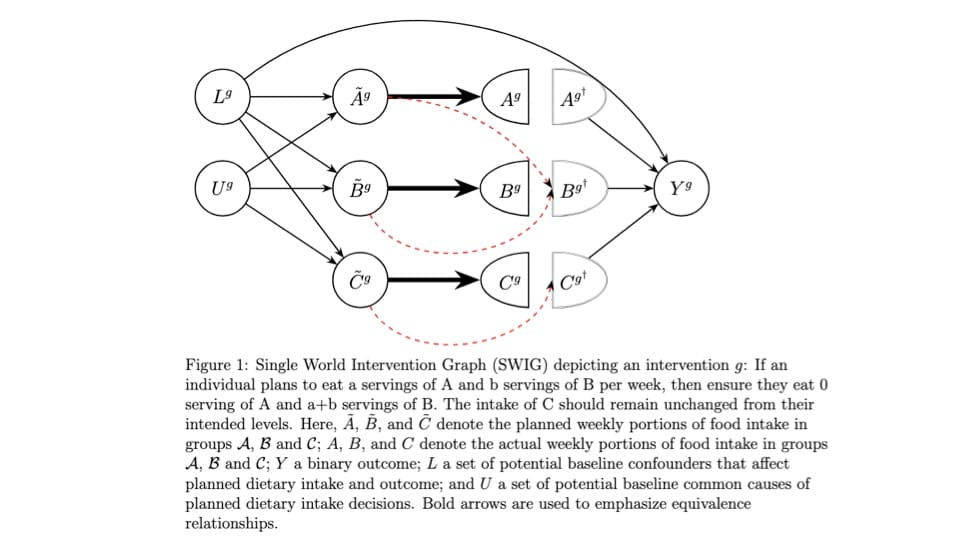Nutrition/Obesity
Identification and estimation of the average causal effects under dietary substitution strategies Yu-Han Chiu* Yu-Han Chiu Lan Wen
The 2020-2025 Dietary Guidelines recommend that most individuals can improve their diet by making some changes to what they eat and drink. In many cases, these changes can be made through simple substitutions, such as choosing chicken instead of processed red meat to decrease sodium intake. The question about such dietary substitution strategies seeks to estimate the average counterfactual outcome under a hypothetical intervention that replaces a food an individual would have consumed in the absence of intervention with a healthier substitute. While substitution analyses have been widely used in nutritional epidemiology using observational data, the studies have not explicitly considered the definition of their causal estimand and the assumptions necessary for identifying and consistently estimating the average causal effect. In this work, we outline a framework for estimating the average causal effect of dietary substitution strategies using observational data. We derived nonparametric identification of these strategies and proposed new estimators that can be used in conjunction with parametric or nonparametric estimation procedures. In contrast to existing research, our approach considers each individual’s natural dietary intake and can be readily translated into real-world interventions or recommendations. Moreover, our estimators avoid imposing unrealistic assumptions of linearity and the absence of interaction terms commonly imposed in parametric outcome regression models. We evaluated the performance of our proposed methods via simulation studies and applied them to estimate the effect of substituting processed red meat with chicken on mortality using data from the Nurses’ Health Study.

